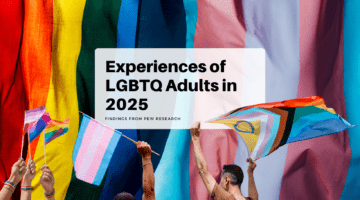Why Do So Many Conservative Men Wind Up In Sex Scandals With Other Men?
July 27, 2016 by Justin Lehmiller
If you follow the news closely, you’ve probably noticed that, month after month, reports emerge about politically or religiously conservative men who find themselves embroiled in scandals in which they were caught having sex with other men. These events routinely make the news because the men involved tend to be outspoken opponents of LGBT+ rights who are caught engaging in hypocrisy.
So why does this keep happening? Why do so many conservative leaders wind up in these situations? Social psychological research offers a few potential explanations.
Let me begin by saying that psychologists long ago documented that homophobic men sometimes harbor same-sex desires. For example, in a 1996 study in which researchers showed different types of porn to homophobic and non-homophobic men, they found that only the homophobic men exhibited increased genital arousal in response to a video of two men having sex [1].
So what are the roots of this hypocrisy? Some research suggests that it might be a product of growing up with authoritarian parents who discourage independence [2]. You can read a long summary of this line of research here, but the basic idea is this: when parents are extremely controlling of their children’s beliefs and behaviors and make their love contingent upon whether their children live up to certain standards, those children may end up acting in a way that’s consistent with their parents’ desires, even though it doesn’t necessarily reflect their own personal desires.
Put another way, when a person feels a lot of outward pressure to be homophobic from their parents, they might strive to repress or deny their sexual orientation in order to earn their parents’ love.
This isn’t the only potential explanation behind why some people with same-sex attractions might support anti-gay political groups and causes. For others, it might have less to do with parenting styles and more to do with strong, long-held religious beliefs that are incompatible with homosexuality. For these individuals, perhaps their religious identity is more central to their sense of self than their sexual identity (at least most of the time).
And in yet other cases, there might be cognitive dissonance at play, which occurs when people hold two contradictory beliefs at the same time or hold beliefs that conflict with their behaviors. This theory argues that we are motivated to resolve these inconsistencies when we become aware of them because they are psychologically uncomfortable.
There are a lot of different ways people can resolve cognitive inconsistencies, such as by changing their beliefs in order to justify them. For example, in the case of someone who is LGBT+ but attended the 2016 Republican National Convention (where the party adopted a platform that was described as “most anti-LGBT…in the Party’s 162-year history”), this person might rationalize the inconsistency by thinking to themselves that “the party’s official platform doesn’t really mean anything anyway.” In other words, these individuals may actively look for ways to rationalize their inconsistent beliefs and feelings whenever discrepancies come to light.
Bottom line: There are several different theories that can help to explain why persons with same-sex attractions and desires sometimes support political and religious causes that seemingly don’t align with their own personal interests. Keep in mind that this phenomenon likely has multiple roots (as most things in psychology do), so it’s not necessarily the case that only one of these theories is correct and that the others are wrong–each may explain how different people end up arriving at the same place.
Want to learn more about Sex and Psychology ? Click here for previous articles or follow the blog on Facebook (facebook.com/psychologyofsex), Twitter (@JustinLehmiller), or Reddit (reddit.com/r/psychologyofsex) to receive updates.
[1] Adams, H. E., Wright, L. W., & Lohr, B. A. (1996). Is homophobia associated with homosexual arousal? Journal of Abnormal Psychology, 105(3), 440-445.
[2] Weinstein, N., Ryan, W. S., DeHaan, C. R., Przybylski, A. K., & Legate, N. (2012). Parental autonomy support and discrepancies between implicit and explicit sexual identities: Dynamics of self-acceptance and defense. Journal of Personality and Social Psychology, 102, 815-832.
Image Source: 123RF/ambrozinio
You Might Also Like:

Dr. Justin Lehmiller
Founder & Owner of Sex and PsychologyDr. Justin Lehmiller is a social psychologist and Research Fellow at The Kinsey Institute. He runs the Sex and Psychology blog and podcast and is author of the popular book Tell Me What You Want. Dr. Lehmiller is an award-winning educator, and a prolific researcher who has published more than 50 academic works.
Read full bio >


